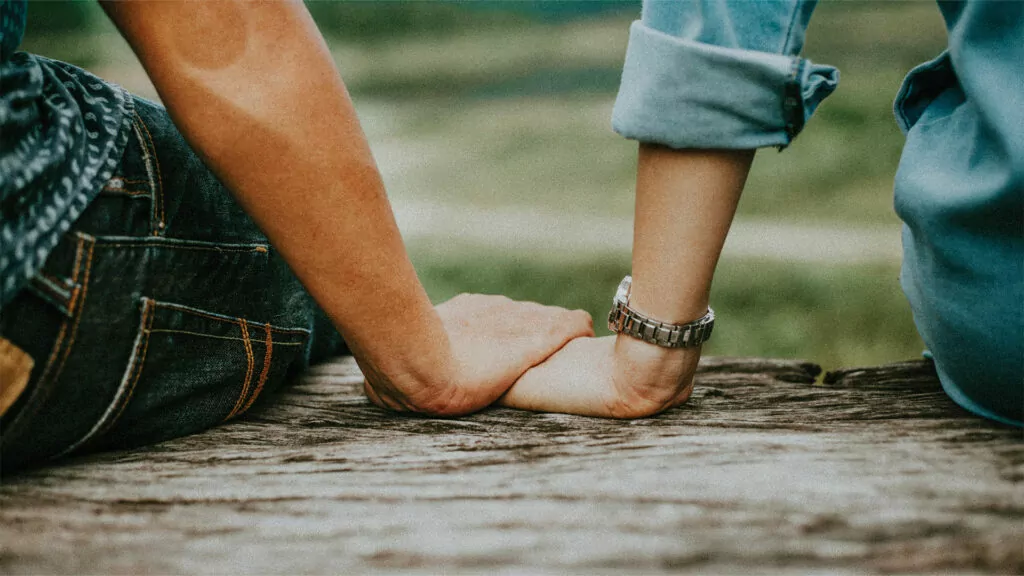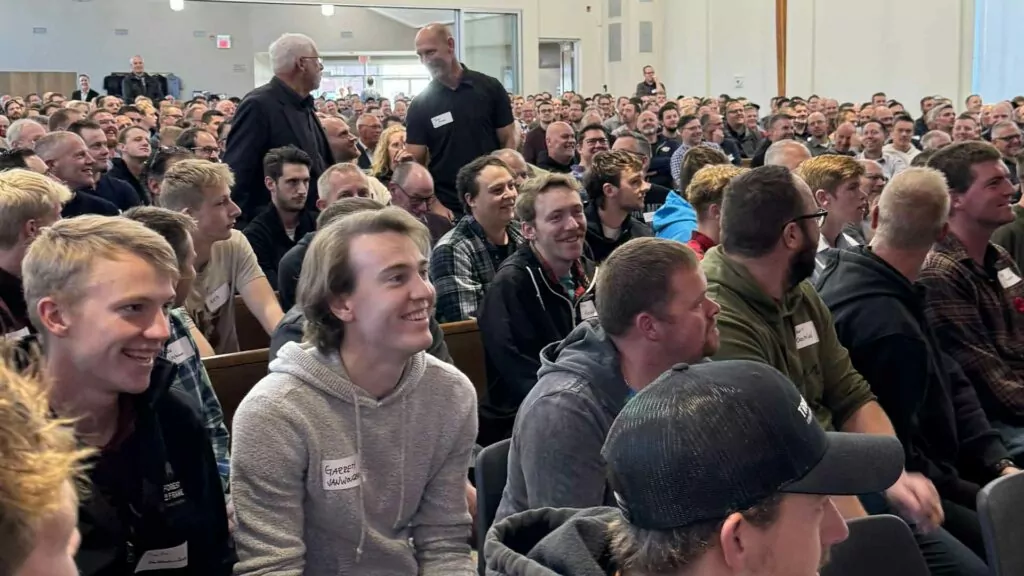Truth & reconciliation is possible, but not as it is being popularized
Until recent decades, “victimhood” was definitely not a status that people would deliberately embrace. In fact, many who were actual victims would do their very best to avoid being labeled as such. Instead, they sought to be heard and understood not as members of some “victim class,” but as unique individuals who had suffered injustice, but who were not defined by that suffering.
For example, Rev. Martin Luther King Jr., who gave his life in his struggle for civil rights for African-Americans, said this in a 1953 radio broadcast:
“We are not responsible for the environment we are born in, neither are we responsible for our hereditary circumstances. But there is a third factor for which we are responsible, namely, the personal response which we make to these circumstances.”
But as the civil rights movement evolved, and with the advent of identity politics, victimhood itself has become a means of attaining power. Many individuals and organizations have turned victimhood into something of an industry, and have sought victim status as a means of gaining influence.
Real sins occurred
Now, there certainly is no shortage of genuine victims in this world – people who have been oppressed, abused, mistreated, excluded from society, persecuted, and even killed simply because of who they are. This cannot and should not be denied. Grave injustices have been committed throughout history in this fallen, sin-stained world.
The question that we face is this: how can these injustices (past and present) be dealt with?
Real guilt isn’t apportioned by skin color, gender
The answer that has predominated over the past generation is that of Critical Race Theory (CRT), which has become the dominant ideology in the “civil rights” arena. Identity politics has taken center stage in public discourse. According to identity politics, people can be divided into two basic classes: the transgressor, and the innocent. Within these two classes are a myriad of sub-classes, understood according to the sociological perspective known as “intersectionality,” an aspect of CRT that has its roots in feminist sociology.
According to the doctrine of intersectionality, all individuals can be categorized according to where they stand on the “victim” scale. On the one end of the scale stands the white, heterosexual, Christian male. This individual is categorized as the transgressor, as a member and representative of the oppressor class. The white heterosexual Christian female can be considered as somewhat less of a transgressor, while on the opposite end of the spectrum stands the person who is the most “marginalized,” the non-cisgender person of color.
The absurdity of this categorization scheme becomes apparent when one considers that a white man who depends on welfare to survive and lives in a run-down shack in the Appalachians of West Virginia is still viewed as a member of the "oppressor" class, while a multi-millionaire African-American whose resume includes an education in elite private schools and Columbia University is still identified as a member of the "innocent" class (as long as his political views are considered to be appropriate).
Real forgiveness isn’t on offer
REAL SINS OCCURRED: This “memory blanket” was displayed at the final Truth and Reconciliation Commission event in 2015 and included statements from former students’ writings. Several noted that students were given numbers rather than names. Among the messages: “My new name is 7,” “Today I got beaten for speaking Mi’kmaq. It slipped out at the lunch table, as I was asking another girl for some bread. I don’t understand what the problem with…” “Today I saw one of the older girls had a black eye. I tried to ask her about it, but she wouldn’t say,” “This is my last time writing in this book. I’m going to kill myself. Why because I hate it here, the white people are getting worse and worse every day,” “It’s this certain serenity you feel when you know something terrible will happen. My grandfather said you feel this before you die,” “I want to go home.” (Picture credit: Susan G. Enberg / Shutterstock.)
Ultimately, it is impossible for the “transgressor” to either redeem himself or be redeemed, and even members of the transgressor class who sympathize with and identify themselves with those on the opposite end of the spectrum can never truly rid themselves of CRT's version of original sin. In the end, it appears that apologies and reparations and expressions of contrition can have no result until perfection is achieved in this life, and every wrong is righted according to the dominant standard.
When it comes to Indigenous issues in Canada and elsewhere, it is the theory and outworking of Critical Race Theory and identity politics that is currently guiding public policy and shaping public discourse. As mentioned, there is no doubt that grave injustices have occurred since the first contact was made between European explorers and settlers and the indigenous populations of the lands where they settled.
Sadly, but truly, the experience of the native inhabitants of the Americas, Australia, and New Zealand is not unique to them. The history of the world is replete with examples of colonization, empire-building, what we would now define as “war crimes,” and even genocide. In fact, yesterday's oppressors often become tomorrow's victims, and vice versa. In all of human history, is there a single ethnic group that can honestly claim to have an unstained record in this regard?
This does not excuse more recent evils, but it does put them in the proper context, and allow us to consider how to answer the question that I posed above: How can these injustices best be dealt with?
Those who adhere to the tenets of Critical Race Theory believe that all change must be accomplished using a top-down approach. It is the State that must right previous wrongs, and the State that must enforce “reconciliation.” The populace must be trained to think correctly about the issues at play. This training is being done at every level of the educational system through the Indigenization of curricula, in which an “Indigenous” worldview must be included in every subject. It is reinforced through special events and days of commemoration, like the Day of Truth and Reconciliation.
And finally, the message is inserted into everyday life by means of repetitive “liturgical” acts, such as the repeated land acknowledgements which have become an essential element of many public events. Through these techniques, the “transgressors” are constantly reminded of their ongoing guilt and responsibility, and the “innocent” are encouraged to remain in a perpetual state of victimhood. It seems that there is nothing that either the transgressor or the innocent can do to rectify this state of affairs; this rectification must be accomplished by the State.
Real repentance comes from the right heart
How should we, as Christians, think about what can only be described as the massive cultural shift that is happening all around us?
First of all, we must recognize Critical Race Theory and identity politics for what they are: ideologies that have highjacked certain Christian concepts (like justice, reconciliation, transgression, and innocence) and turned them into radical distortions of the truth of Scripture. According to God's Word, all of us are transgressors. There is only One who was truly innocent, our Lord Jesus Christ. True justice is connected with righteousness, and absolute justice will never be accomplished in this world, try as we might. Heaven will never be created on earth, and apart from the redeeming work of Christ, true reconciliation between God and man, and between human beings themselves, cannot happen. All attempts to implement a utopian vision of society are doomed to fail, because they begin, as CRT and identity politics begin, with false beliefs about the nature of the world and about human nature itself.
Neither can true reconciliation and justice be implemented from the top down. It is very possible for the State to convince the entire population to recite what it deems to be the appropriate words and avoid expressing (at least publicly) “inappropriate views.” But the State cannot change the human heart, and neither can it legislate love, which is vital to reconciliation and the redressing of wrongs. Love must be expressed on a personal level, in the context of interpersonal relationships, and cannot be implemented through impersonal programs and activities imposed from above. We are called to love our neighbor, regardless of his or her ethnicity. As Christians, we are called to show that love, the love of Christ, through our own actions, in a very personal way.
Real repentance might be costly
This is a costly attitude. It will take us out of our comfort zone. It requires sacrifice. It doesn't offer any kind of “quick fix,” nor does it imagine that it will solve all of the world's problems once and for all. But it is genuine, and the outworking of the Holy Spirit's presence in our lives. Institutional programs and policies are impersonal, often completely ineffective or even counter-productive, and history shows that they do not accomplish the goals that they set out to achieve. They allow individuals to pass on responsibility to others while perhaps saying the right things and expressing virtuous opinions, but in the end they can neither bring about genuine reconciliation nor bring about lasting, positive change. This is something that can only be done through the hard work of getting to know our neighbors – whatever their ethnicity – and building living relationships with them. In this way, beginning with the first great commandment, to love the Lord with all our heart, we will put into practice the second: to love our neighbor as ourselves.
This is one of several articles we’ve published about Canada’s history with its Indigenous peoples, with the sum of the whole being even greater than the parts. That's why we'd encourage you to read the rest, available together in the March/April 2003 issue. You can listen to Rev. Jim Witteveen’s podcast on his website. His latest book, “How in the world did we get here?” is available there and at ReformedChristianBooks.com....












